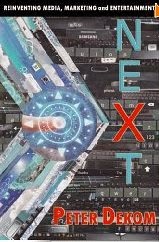
The Gulf of Aden is a dangerous but strategic trade passage. Somali pirates troll the region, and Islamist militants may be slowly taking over that mob of land seeming glued to the southern-most tip on the Arabian Peninsula, Yemen, a word derived from the Arabic word for “south.” Yemen sits on the northern mouth, however, of the Red Sea, which in turn leads north to the vital Suez Canal, Europe’s passageway for everything from Middle Eastern oil to goods from India and even China.
Yemen’s history is one of conflict and instability. The CIA World Factbook presents an historical summary of this impoverished (oil reserves are dwindling fast) desert country of about 24 million: “North Yemen became independent of the Ottoman Empire in 1918. The British, who had set up a protectorate area around the southern port of Aden in the 19th century, withdrew in 1967 from what became South Yemen. Three years later, the southern government adopted a Marxist orientation. The massive exodus of hundreds of thousands of Yemenis from the south to the north contributed to two decades of hostility between the states. The two countries were formally unified as the Republic of Yemen in 1990. A southern secessionist movement in 1994 was quickly subdued…
“In 2000, Saudi Arabia and Yemen agreed to a delimitation of their border. Fighting in the northwest between the government and Huthi rebels, a group seeking a return to traditional Zaydi Islam, began in 2004 and has since resulted in seven rounds of fighting - the last ended in early 2010 with a tentative ceasefire. The southern secessionist movement was revitalized in 2008 when a popular socioeconomic protest movement initiated the prior year took on political goals including secession…
“Public rallies in Sana'a against President SALIH - inspired by similar demonstrations in Tunisia and Egypt - slowly built momentum starting in late January 2011 fueled by complaints over high unemployment, poor economic conditions, and corruption. By the following month, some protests had resulted in violence, and the demonstrations had spread to other major cities. By March the opposition had hardened its demands and was unifying behind calls for SALIH's immediate ouster. Media reports indicated that as many as 100 protesters had been killed and many more injured amid the protests. Domestic and international efforts to mediate a resolution to the political crisis had not yielded a deal as of mid April.” The Yemeni city of Jaar succumbed to rebel attacks in March, but matters have deteriorated even further since.
Until two months ago, when popular sentiments strongly suggested his tenure was unsustainable, the U.S. had backed President Sahih because of his willingness to cooperate in America’s fight against Islamist terrorists, but now the rebels are using that former relationship to vilify the President and demand his ouster. Anything “American” carries a taint, and the Islamist rebels, who are making alarming progress, are quick to capitalize on that fact and blame the U.S. for as much as possible. Memorial weekend was a time of remembrance and honor in the United States. But that weekend was a day of celebration for the rebels: a second city fell into their control on May 29th: “Islamist militants consolidated control over a second city in southern Yemen [on May 30th], seizing banks, government offices and the security headquarters as government forces responded with mortar fire… The fall of the coastal city of Zinjibar to self-styled holy warriors who claimed to have ‘liberated’ it from ‘the agents of the Americans’ fed into Western fears that militants sympathetic to Al Qaeda could exploit the breakdown of authority to take control of territory…
“The fighting in the south came after a week in which tribal fighting in the capital, Sana, pushed the country to the brink of civil war. That front seemed to quiet on Sunday as the government struck a cease-fire deal with its tribal rivals, bringing relative calm here after days of fierce fighting in which more than 100 people were killed… Violence broke out between the two sides last Monday after Mr. Saleh refused to follow through on his promise to sign an agreement leading to his resignation. It was the third time since the uprising began in January that Mr. Saleh had agreed to transfer power, and the third time he reneged o n the promise. ” New York Times, May 29th.
A counter force, made up of respected tribal elders from a non-Islamist camp that opposes Saleh, has theoretically been entrusted with a transition in power: “In Sana, Yemeni officials said Mr. Saleh had agreed to a truce with his historic tribal rivals the Ahmar family, and there were tangible signs of a reduction in tensions [on May 30th, after the fall of Jinzibar]… Tribesmen from the Hashid tribal confederation loyal to the Ahmar family began … to hand over to the authorities government buildings that they had occupied last week… ‘We will hand over the other ministries one by one gradually,’ Hashem al-Ahmar, one of the 10 Ahmar brothers, told reporters...” NY Ti mes. It all seems so far away, so unconnected to things American, but control of a vital international trade route is in jeopardy, and anti-American militants may find yet another base from which to plan, train and mount their attacks. It all matters.
I’m Peter Dekom, and the sea of complexity surrounding international struggles thousands of miles away still impacts our lives in the West.












